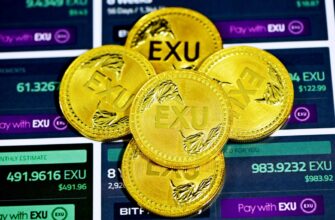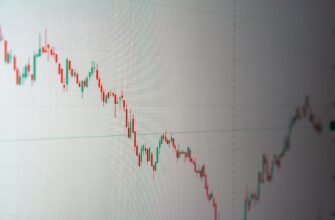- Is NFT Profit Taxable in the UK 2025? Understanding Your Tax Obligations
- How Are NFT Profits Taxed in the UK?
- Capital Gains Tax Rates and Allowances for 2025 (Projected)
- Reporting NFT Gains and Paying Tax in 2025
- Special Cases: Income Tax vs. Capital Gains Tax
- NFT Tax UK 2025: Frequently Asked Questions (FAQ)
- Staying Compliant in 2025 and Beyond
Is NFT Profit Taxable in the UK 2025? Understanding Your Tax Obligations
The booming world of Non-Fungible Tokens (NFTs) has created exciting opportunities for creators and investors alike. But with potential profits comes a crucial question: is NFT profit taxable in the UK 2025? The short answer is yes. In the UK, profits made from selling NFTs are generally subject to taxation, primarily under Capital Gains Tax (CGT) rules. While specific tax legislation for 2025 hasn’t been finalized at the time of writing (based on knowledge up to July 2024), the fundamental principles governing cryptoasset taxation are expected to remain consistent. This guide breaks down everything you need to know about NFT tax in the UK for 2025, helping you stay compliant and avoid unexpected bills.
How Are NFT Profits Taxed in the UK?
HMRC (His Majesty’s Revenue and Customs) treats NFTs as chargeable assets for tax purposes, similar to stocks, shares, or property. This means that when you dispose of an NFT for more than you paid to acquire it (including associated costs), you likely realize a capital gain. This gain is potentially subject to Capital Gains Tax. Key points include:
- Taxable Event: A ‘disposal’ isn’t just selling for fiat currency (like GBP). It also includes swapping NFTs for other cryptoassets, using an NFT to buy goods or services, or even gifting it (except to a spouse/civil partner).
- Taxable Gain Calculation: Your gain is calculated as: Sale Price (or Market Value) – Purchase Price (Cost Basis) – Allowable Costs.
- Allowable Costs: These reduce your taxable gain and can include:
- The original purchase price of the NFT.
- Transaction fees (gas fees) paid to acquire it.
- Transaction fees paid to sell or dispose of it.
- Costs directly related to improving the NFT (if verifiable and adding value).
- Professional advice fees specifically related to the acquisition/disposal.
Capital Gains Tax Rates and Allowances for 2025 (Projected)
While the Spring Budget 2024 announced a reduction in the higher CGT rate for residential property gains, the rates applicable to other chargeable assets like NFTs are expected to remain unchanged for the 2024/25 tax year (ending April 5, 2025). Projections for gains realized within the 2025/26 tax year (starting April 6, 2025) depend on future government announcements, but current rates provide the best guide:
- Annual Exempt Amount (AEA): This is the amount of gain you can make tax-free each tax year. For the 2024/25 tax year, it’s £3,000. It is scheduled to remain £3,000 for 2025/26. Only gains above this allowance are taxable.
- Basic Rate Taxpayers: If your total taxable income (after allowances) plus your taxable gains fall within the basic income tax band (£1 – £37,700 for 2024/25, thresholds for 2025/26 TBC), your NFT gains are taxed at 10%.
- Higher or Additional Rate Taxpayers: If your total taxable income plus gains pushes you into the higher (£37,701 – £125,140) or additional rate (over £125,140) bands, your NFT gains are taxed at 20%.
Important Note: Always check for official HMRC announcements or consult a tax advisor closer to 2025 for confirmed rates and allowances.
Reporting NFT Gains and Paying Tax in 2025
You are responsible for declaring your NFT gains and paying any tax due to HMRC. The process involves:
- Record Keeping: Meticulously track all NFT transactions: dates, amounts in GBP (use exchange rates at time of transaction), wallet addresses, descriptions of assets, and all associated costs (gas fees, platform fees). Keep this for at least 5 years after the relevant tax return deadline.
- Calculating Gains/Losses: For each disposal within the tax year (April 6 – April 5), calculate the gain or loss. You can use the ‘Share Pooling’ rules (similar to shares) if you buy and sell the same type of NFT multiple times.
- Using Your Allowance: Offset losses against gains in the same year. Only gains exceeding the Annual Exempt Amount (£3,000 projected for 2025/26) are taxable.
- Self Assessment Tax Return: Report your total taxable gains (after losses and AEA) on your annual Self Assessment tax return (SA100), specifically in the Capital Gains Tax summary pages (SA108).
- Payment Deadline: Any CGT due must be paid by January 31st following the end of the tax year in which the gain was made. For gains in the 2025/26 tax year (ending April 5, 2026), the payment deadline would be January 31, 2027.
Special Cases: Income Tax vs. Capital Gains Tax
While CGT is the primary tax for investors, creating and selling NFTs might be treated as trading income, subject to Income Tax and National Insurance Contributions (NICs), which have higher rates than CGT. HMRC looks at ‘badges of trade’ to determine if your activity is a trade:
- Frequency and number of transactions.
- Intention to make a profit.
- How the NFTs were acquired (e.g., minting many yourself).
- Organisation (e.g., marketing efforts, business structure).
- Financing methods.
If deemed trading, profits are taxed as self-employment income. Professional creators or frequent flippers should seek specific advice.
NFT Tax UK 2025: Frequently Asked Questions (FAQ)
Q1: Is buying an NFT taxable in the UK?
A: No, simply purchasing an NFT with cryptocurrency or fiat money is not a taxable event. Tax only becomes due when you dispose of it and make a gain above your Annual Exempt Amount.
Q2: What if I sell an NFT for less than I paid?
A: You make a capital loss. You can report this loss on your Self Assessment return. Capital losses can be offset against capital gains made in the same tax year, or carried forward indefinitely to offset against future capital gains. They cannot be offset against income tax.
Q3: Are gas fees deductible?
A: Yes, transaction fees (gas fees) incurred when acquiring an NFT and when disposing of it are generally allowable costs that reduce your taxable gain.
Q4: How do I value my NFT for tax purposes?
A: When you dispose of an NFT for cryptocurrency, you need to convert the crypto amount received into GBP using the exchange rate at the exact time of the transaction. If disposing via a swap or gift, you must use the market value of the NFT in GBP at the time of disposal. Reliable exchange data is crucial.
Q5: Is staking or earning NFTs taxable?
A: NFTs received as rewards (e.g., from staking or play-to-earn games) are considered income at their market value in GBP when received. This income is potentially subject to Income Tax and NICs. When you later sell these NFTs, any further gain may be subject to CGT.
Q6: What happens if I don’t report my NFT profits?
A: Failure to report taxable NFT gains can result in penalties, interest on unpaid tax, and potentially criminal prosecution for serious cases. HMRC is increasingly focusing on cryptoasset compliance.
Staying Compliant in 2025 and Beyond
Understanding that NFT profit is taxable in the UK is the first step. While the core principles of CGT are expected to apply in 2025, staying informed about potential legislative changes is vital. Maintain impeccable records, understand the difference between investing (CGT) and trading (Income Tax), utilize your allowances, and report accurately via Self Assessment. Given the complexity, especially for high-volume traders or creators, consulting a qualified tax advisor experienced in cryptoassets is highly recommended to ensure full compliance and optimize your tax position. Don’t let tax uncertainty overshadow your NFT journey – plan ahead for 2025.








